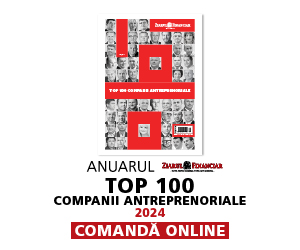Romania needs a 5 to 10 year vision of fiscal policy, so as to avoid problems caused to the business environment by the fluctuations of taxes that go down one year and up again the next, NBR Governor Mugur Isarescu yesterday said.
He was commenting on the measure included in the new agreement with the IMF and regarding the VAT increase from 19% to 22% as of January 1, 2006.
a??This is an extremely important issue and the state institutions and economists should seriously debate it this summer. It is not the level of taxes that is of consequence here, it is the predictability of their development,a?? Isarescu stated.
He says the whole debate with the IMF started from the fact that the share of the budgetary revenues in the GDP had gone down to less than 30% as a result of the introduction of the flat tax, considering the same share reaches 36% in Bulgaria and 40% in the European Union.
a??Under the circumstances, our capacity to use the European funds is seriously hindered,a?? Isarescu said, explaining Romania was being faced with a paradox: on the one hand the state cannot seem to collect enough revenues, while on the other companies complain about being overtaxed, with more than 50%.
The NBR Governor confirms that the talks with the IMF on the VAT increase started as early as January, after the introduction of the flat tax, with the authorities and especially the NBR directing all of their efforts towards pushing this back for 2006.
a??We were against the VAT increase this year because it would have overlapped with the increases in the controlled prices, as the inflationary target was already tight as it was and chances of slippages were really high. This would have caused Romania to create another credibility problem,a?? Mugur Isarescu stated. Even so, the NBR has to modify the inflationary target for 2006, now said to be 4%. Isarescu specified the projected VAT increase would have a direct impact of at least two percentage points on next yeara??s inflation target.
The Governor says the VAT increase is a political decision to move from a prevailing direct taxation to a prevailing indirect taxation. This is the model used in several countries in the region, such as Poland, Hungary and Bulgaria, where consumption is levied visibly higher taxes than the companiesa?? profits. This is the exact opposite of the situation in the West where VAT is almost half of the profit tax. The decision included in the supplementary letter of intent agreed upon with the IMF comes five years after the Isarescu government was cutting the standard VAT from 22% to 19% on January 1, 2000.
Finance Minister Ionut Popescu yesterday confirmed the VAT would go up to 22% next year, admitting this was caused by the need for additional budgetary revenues, to provide funding for infrastructure projects, co-funding programmes and Romaniaa??s mandatory contributions to the European Union budget, as well as by the need to curb consumption, used as an argument initially.
The NBR Governor says that one of the drawbacks of this measure is that it will affect the entire population, whilst representing a continuation of the efforts to dig the grey economy out. razvan.voican@zf.ro
Pentru alte știri, analize, articole și informații din business în timp real urmărește Ziarul Financiar pe WhatsApp Channels












































